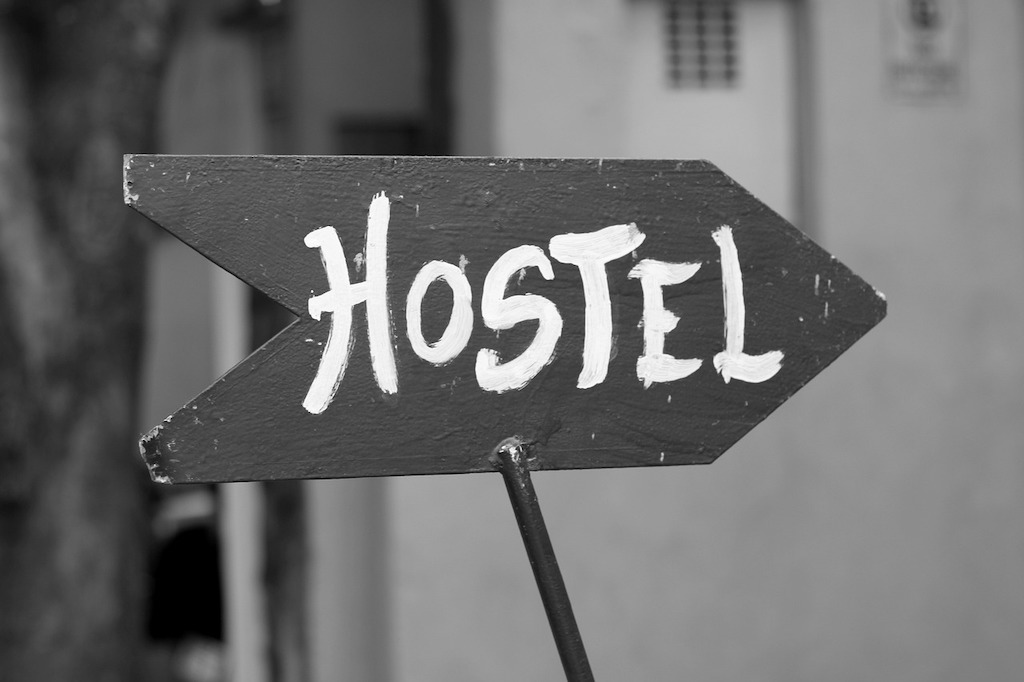Ah, hostels! The very word conjures up images of backpackers sharing stories around a communal kitchen table, or of dormitory rooms buzzing with the excitement of travellers from all over the world. For many, hostels are the backbone of their travel experiences, offering not just a place to rest their heads, but a community, a home away from home. In this article we will look on hostel stays guide.
However, as with any travel experience, the key to a great hostel stay lies in the choices you make. Not all hostels are created equal, and what might be a dream stay for one person could be a nightmare for another. It’s crucial, then, to understand what you’re getting into and to choose the right hostel that aligns with your travel needs and personality.
Understanding Hostels
Definition and Concept of a Hostel:
At its core, a hostel is a budget accommodation option that focuses on shared experiences. Unlike hotels, where guests often stay in isolated rooms, hostels encourage interaction by offering shared sleeping quarters, commonly known as dormitories, and communal areas like kitchens, lounges, and sometimes even bars. The idea is to foster a sense of community among travellers, making it easy to meet new people and share experiences.
Different Types of Hostels:
While the basic concept of a hostel remains the same, there are several types to choose from, each offering a unique experience:
Party Hostels: As the name suggests, these are for those looking to let their hair down and party. Often located in bustling city centres or popular beach destinations, party hostels organise nightly events, pub crawls, and have an energetic vibe.
Chiller Hostels: Perfect for those seeking a laid-back atmosphere. These hostels are often found in serene locations, offering travellers a chance to relax, read a book, or simply soak in the surroundings.
Nature-y Hostels: Nestled in natural settings like mountains, forests, or by the lakeside, these hostels are ideal for nature lovers. They offer opportunities for hiking, trekking, or just basking in the beauty of Mother Nature.
Co-working Hostels: A relatively new concept, these hostels cater to digital nomads and working travellers. They combine the traditional hostel experience with workspaces, offering high-speed internet, desks, and sometimes even conference rooms.
Benefits of Staying in a Hostel
Cost-effective Accommodation:
One of the primary reasons travellers opt for hostels is the cost. Significantly cheaper than hotels or bed-and-breakfasts, hostels allow you to stretch your travel budget further. This means more money for experiences, food, and souvenirs!
Meeting Like-minded Travellers and Forming Connections:
Hostels are melting pots of cultures, backgrounds, and stories. Whether you’re travelling solo or with friends, you’re bound to meet interesting individuals. These connections can sometimes turn into lifelong friendships or at the very least, offer you a travel buddy for a portion of your journey.
Participating in Hostel-organized Activities and Events:
Many hostels go beyond just providing a bed. They organise events like movie nights, cooking classes, local tours, or yoga sessions. These activities not only offer a deeper dive into the local culture but also provide an excellent opportunity for guests to bond.
In the world of travel, hostels have carved a niche for themselves, offering travellers a unique blend of community, adventure, and affordability. Whether you’re a seasoned backpacker or a first-time traveller, understanding and embracing the hostel culture can significantly enhance your travel experience.

Safety in Hostels
Debunking Myths About Hostel Dangers:
There’s a common misconception that hostels are inherently unsafe. This myth, often perpetuated by sensationalised stories or outdated beliefs, couldn’t be further from the truth. Most hostels today prioritise the safety of their guests, with many having 24/7 security, CCTV cameras, and secure access systems. While it’s essential to be cautious wherever you stay, hostels are no more dangerous than any other accommodation option.
Tips for Ensuring Personal Safety and Security of Belongings:
- Lockers: Always use the lockers provided by the hostel to store your valuables. If you’re carrying a padlock, opt for a sturdy one.
- Stay Alert: While hostels are generally safe, it’s always good to be aware of your surroundings. Trust your instincts; if something feels off, it probably is.
- Get to Know Your Roommates: A simple conversation can go a long way. It not only helps in making friends but also gives you a sense of who you’re sharing your space with.
- Keep Essentials Close: Items like passports, money, and essential documents should always be within your reach, preferably in a money belt or a secure bag.
Importance of Travel Insurance:
Travel insurance isn’t just a good-to-have; it’s a must-have. It covers not only potential thefts in hostels but also other travel-related mishaps like flight cancellations, medical emergencies, or lost luggage. When staying in shared accommodations like hostels, having that extra layer of protection can offer invaluable peace of mind.
The Hostel Experience
The Social Nature of Hostels:
Hostels are more than just a place to sleep; they’re a social hub. With communal areas and shared facilities, they naturally foster interactions. It’s not uncommon to find travellers sharing their day’s adventures over a meal, planning a group outing, or simply chatting away till the wee hours.
Pros and Cons of Dormitory Living:
Pros:
- Cost-Effective: Dormitories are the cheapest option in most hostels.
- Social Interaction: Sharing a room with others provides ample opportunities to make new friends.
Cons:
- Lack of Privacy: With multiple people in one room, privacy can be limited.
- Noise: Depending on your roommates, dormitories can sometimes be noisy.
Opting for Private Rooms in Hostels:
For those who value privacy but still want the hostel experience, many establishments offer private rooms. These rooms, while pricier than dormitories, provide a quieter and more personal space, making them perfect for couples, families, or solo travellers who prefer solitude.
Eating and Cooking in Hostels:
One of the perks of staying in a hostel is access to a communal kitchen. This not only saves money but also allows travellers to try their hand at cooking local dishes. It’s a shared space, so always remember to clean up after yourself and respect the kitchen rules.
Choosing the Right Hostel
Factors to Consider:
- Price: While hostels are budget-friendly, prices can vary based on location, amenities, and time of year.
- Location: Consider the hostel’s proximity to major attractions, public transport, and safety of the neighbourhood.
- Amenities: Look for facilities like free Wi-Fi, breakfast, lockers, and laundry services.
- Reviews: Past guests’ experiences can provide invaluable insights.
- Hostel Vibe: From party hostels to quiet retreats, choose one that matches your travel style.
Choosing the right hostel can make or break your travel experience. By prioritising safety, understanding the unique hostel culture, and being informed about your choices, you can ensure a memorable and enjoyable stay. Safe travels!
Importance of Reading Reviews and Understanding What’s Included in the Price:
Reviews can be a goldmine of information. They offer a glimpse into the actual hostel experience, beyond the glossy photos and marketing pitches. Always check multiple review platforms and look for consistent feedback. Additionally, understand what’s included in the price. Some hostels might charge extra for linens, towels, or breakfast.
Tips for Booking a Hostel and Getting the Best Deals:
- Book Directly: Sometimes, booking directly through the hostel’s website can fetch better deals.
- Stay Longer: Many hostels offer discounts for extended stays.
- Travel Off-Peak: Travelling during the off-season can result in lower prices and fewer crowds.
Hostel Etiquette and Tips
Respecting Shared Spaces and Other Travelers:
Hostels are communal spaces, and respecting them is paramount. Always clean up after yourself, whether it’s in the kitchen, bathroom, or common room. Remember, you’re sharing these spaces with others, and a little consideration goes a long way. Similarly, be mindful of noise levels, especially during quiet hours. If you’re returning late or leaving early, do so quietly to avoid disturbing others.
Making the Most of the Hostel Experience:
Engage with fellow travelers. Join group activities or tours organized by the hostel. Share stories, exchange tips, and perhaps even plan joint adventures. The beauty of hostels lies in the community they foster, so dive in and immerse yourself in the experience.
Packing Essentials for a Hostel Stay:
- Earplugs and Eye Mask: Essential for light sleepers or those in bustling dormitories.
- Padlock: For securing your belongings in lockers.
- Quick-Dry Towel: Compact and handy, especially if the hostel charges for towels.
- Flip-flops: Useful for showers and general use around the hostel.
- Portable Charger: Ensure your devices are always charged, even if power outlets are in high demand.
- Reusable Water Bottle: Stay hydrated and eco-friendly.
Conclusion
Hostel living is more than just an affordable accommodation option; it’s a journey in itself. From the friendships forged in dormitory rooms to the stories exchanged over communal dinners, hostels offer a unique travel experience that hotels often can’t match. They teach you to be adaptable, open-minded, and to find joy in shared experiences.
As we wrap up this guide, remember that the essence of hostelling lies in community and connection. So, on your next adventure, embrace the hostel culture. Dive into the shared experiences, respect the space and the people, and most importantly, let the magic of communal living enrich your travels. Safe journeys and happy hostelling!
FAQ
Travel tips for females staying in hostels?
Choose Female-Only Dorms: Many hostels offer female-only dormitories, providing an added layer of comfort and security.
Research the Hostel: Before booking, read reviews specifically from other female travellers to gauge the safety and comfort level of the hostel.
Stay Aware: Always be aware of your surroundings and trust your instincts.
Secure Your Belongings: Use lockers and padlocks to secure your valuables.
Dress Comfortably: While you should always dress how you feel best, consider packing some comfortable and modest clothing for shared spaces.
Tips for staying in a hostel for the first time?
Do Your Homework: Research the hostel thoroughly, reading reviews and checking their facilities.
Pack Light: Space is limited in dormitories, so pack only essentials.
Introduce Yourself: Don’t be shy! Introduce yourself to your roommates and make new friends.
Ask Questions: Hostel staff are usually well-informed about the local area. Don’t hesitate to ask them for tips or directions.
Stay Open-minded: Every hostel and its guests are unique. Embrace the experience with an open mind.
How to survive staying in a hostel?
Respect Others: Be mindful of noise levels, especially during quiet hours.
Stay Organised: Keep your belongings tidy to avoid misplacing items or encroaching on others’ space.
Use Earplugs and Eye Masks: These can be lifesavers in a noisy or busy dorm.
Participate: Join in on hostel activities or communal meals to enhance your experience.
Stay Safe: Always lock up your valuables and be cautious of your surroundings.
What to pack for a hostel stay?
Padlock: Essential for securing your belongings in lockers.
Quick-Dry Towel: Compact and dries fast.
Earplugs and Eye Mask: For better sleep in shared dorms.
Flip-flops: Useful for communal showers.
Reusable Water Bottle and Cutlery: Stay hydrated and ready for meals.
Portable Charger: Keep your devices charged.
Do you have to book hostels in advance?
While it’s not always mandatory to book hostels in advance, it’s highly recommended, especially during peak travel seasons or in popular destinations. Booking ahead ensures you get a spot in your preferred hostel and can also sometimes fetch you better deals. If you’re travelling during off-peak times or to less touristy areas, you might have the flexibility to book on the go.





